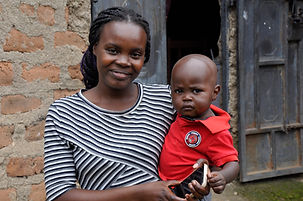New life is in the wind for rural farmers seeking freedom from spiritual fear and confusion—anticipation for the “JESUS” Film to reach all villages is high and the first books of the Bible in the mother tongue are eagerly being unpacked and read.
the Need
The Project
Kabras project team members, trained by staff from our national partner in Kenya, have made a commitment to:
Develop an alphabet.
Translate the New Testament and distribute it in print and digital formats.
Publish a literacy manual.
Hold literacy classes in the language community.
Provide mother-tongue Scripture-based materials like prayers, verse calendars, and children’s books.
Facilitate listening groups that listen to available Scripture together.
Continue to promote the use of God’s Word in Kabarisi.
BIble Translation Progress
Drafted

100
Community-Checked

100
Quality-Checked

100
New! (2024-2025)

God Remembered Us!

An Answer to Prayer

Reclaiming Names
“This work of Bible translation is helping us, as young people. For the last three years, coming together and meeting with the reviewers has really improved my knowledge and understanding of our language. Even now, I can fluently pray in Kabarisi without engaging in other languages—initially I could not.”
Declan, a young man from the Kabras community





